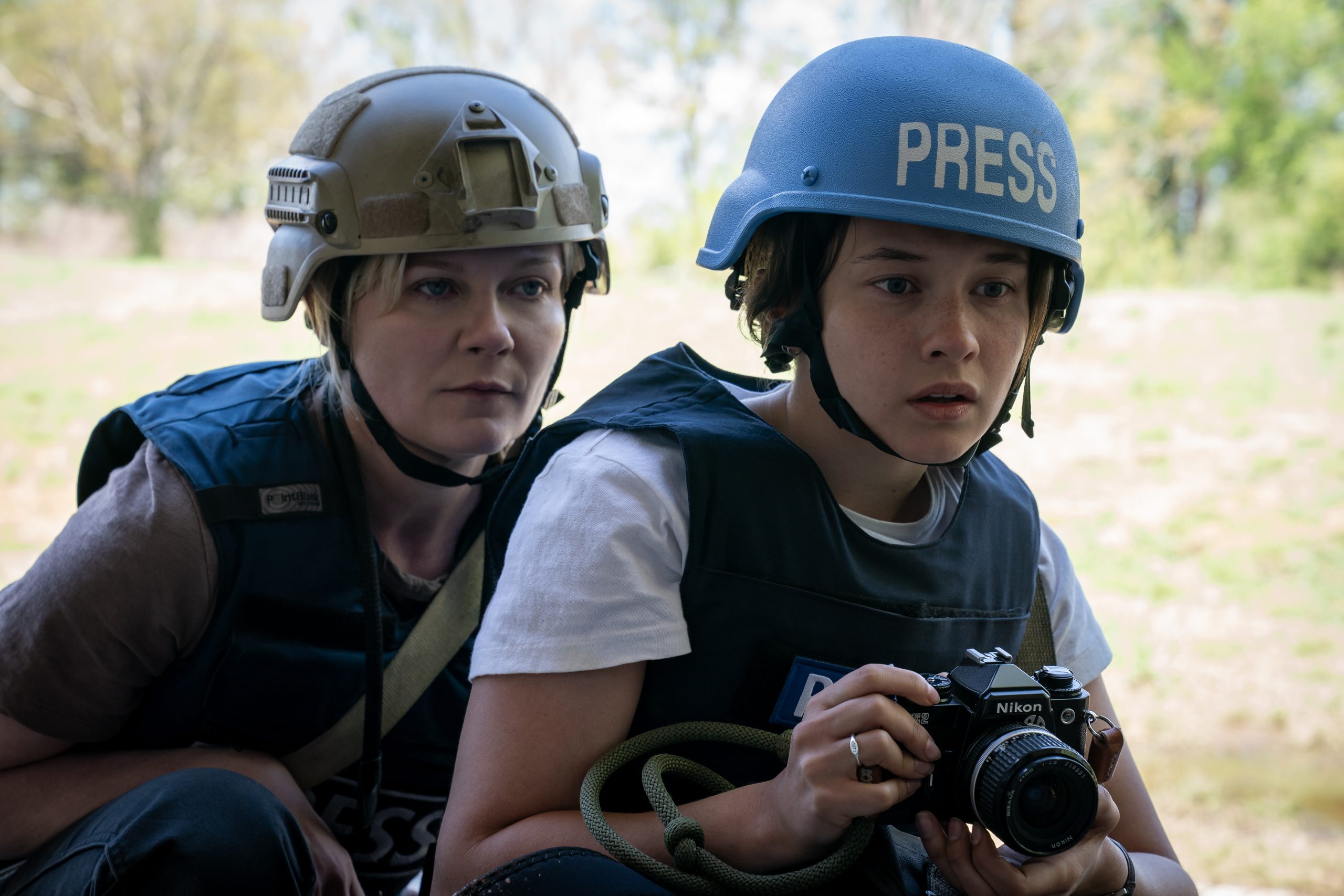
What are you boys fighting for?
That’s the question writer-historian Shelby Foote tries to answer in Ken Burns’ landmark 1990 documentary The Civil War. Foote finds it in the story of a Union soldier encountering a beleaguered Confederate rebel, a young man obviously impoverished who owns neither slaves nor land. “Why you boys fighting?” the Union soldier asks the rebel. “Because you’re down here,” the Confederate responds.
Writer-director Alex Garland’s Civil War is shot through with that same sense of defiance — without Foote’s folksy relish for a good allegory. Civil War is harsh. Set in the modern day, or at least very near future, Garland’s cinematic distress signal doesn’t just feel familiar; it feels inevitable.
But for future audiences, Civil War may be harder to decode as Garland offers only broad strokes for his backstory. The United States government has been at war with the secessionists of California and Texas — known collectively as the Western Front and represented by an American flag with two stars. Florida has also rebelled, trying to take the Carolinas with it. The cause of the secession is never stated, only assumed, and the length of the war at the point we enter the story is undefined. Seen only briefly and mirroring a former real-life commander-in-chief through his use of hyperbole is the President (Nick Offerman), whose disdain for the press core runs so deep he’s known to have reporters executed on the South Lawn. Naturally, these are the characters through which we experience Civil War.
As you might expect, the four who make up the movie’s core are a motley crew. There’s Joel (Wagner Moura), a Reuters reporter with a sexual attraction to combat; Lee (Kirsten Dunst), a decorated war photographer who’s seen it all and let it claim every last bit of her; Sammy (Stephen McKinley Henderson), an aging journalist from the New York Times who cares more about the company he keeps than the story he files; and Jessie (Cailee Spaeny), the newcomer on the scene who wants to get in on the action while the getting’s good.
Jessie gets what she wants, including an experience that molds and shapes her into the person she’s dreamed of becoming. In Garland’s hands, that’s not an aspiration. He and cinematographer Rob Hardy shoot Jessie and Lee like vultures hovering close to their prey, waiting for the situation to go sideways, for a soldier to get shot or worse, so they can take their picture. Death in 10,000 words is what Jessie and Lee are selling, and the story isn’t complete until the body stops moving.
Too jaundiced? Hardly. In one of Civil War’s quiet moments, Lee and Sammy share a heart-to-heart, with Lee admitting that she used to hope that the right photo would change things. “I thought I was sending a warning home: Don’t do this,” she says. “But here we are.”
And here she is, surrounded constantly by reporters, from Sammy to Joel to a bevy of others, who are no longer grappling with the moral complexities of their work and maybe never did in the first place. Lee’s photos aren’t warning others to stay away; they’re galvanizing a whole generation of Jessies to come and join the party.
It might not be fair to compare Garland’s Civil War feature with Burns’ documentary — but, really, they don’t seem that far off. Burns dives so deeply into the minutiae and the politics that defined four years of American history that the only real definitive answer it offers seems to be the birth of our national discontent. Garland ups the ante by giving his Civil War no anchoring conflict, no debated morals and no righteous grounding of any kind. Here is a nation ready to tear itself apart for no more reason than the fun of it.
So it was 160 years ago when the North and the South took up arms against each other. Both sides were eager, and both sides thought the whole shebang would be over in a couple of weeks. That’s the moment from Burns’ 12-hour doc that’s stuck with me the strongest. And that’s the sentiment that came to mind when a young man in my screening of Civil War yelled, “Fuck yeah!” as one character ran over another with a car. I know a lot of people fear the next American Civil War is right around the corner. It might be closer than they think.
ON SCREEN: Civil War opens in theaters and IMAX on April 12.
